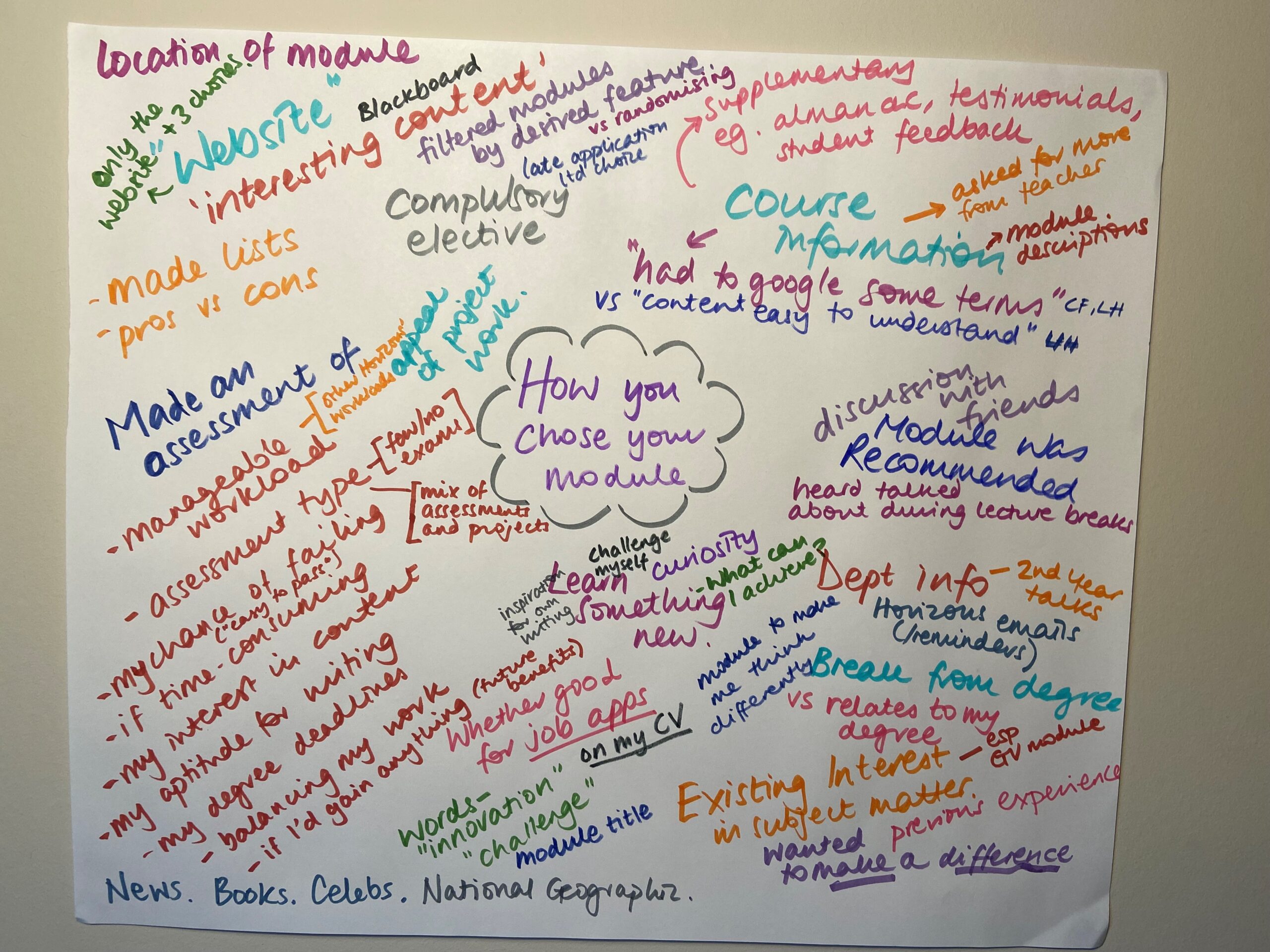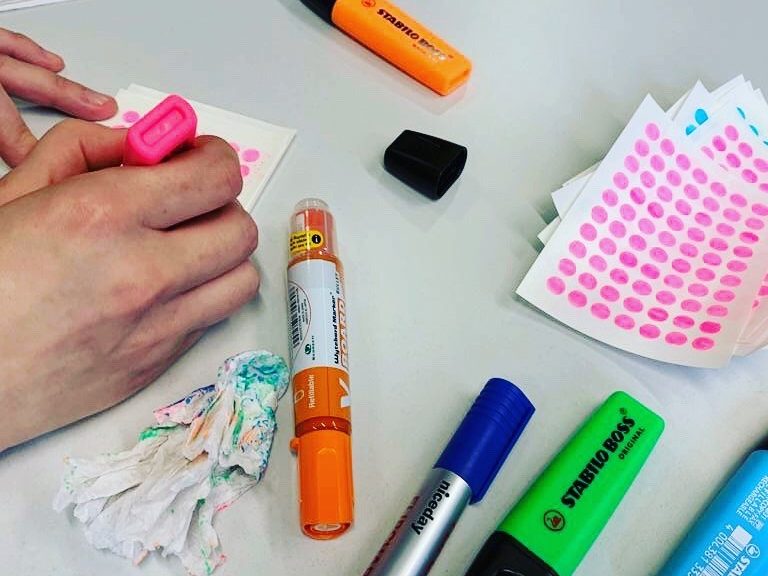I’ve been taking a look at some of the qualitative data to come out of the Great Expectations project from 2019/20. It’s given me an interesting insight into student decision-making and wanted to share some of my findings. Continue Reading
Category: Great Expectations Outputs
Great Expectations: So Far
Update from project leader Cleo Bowen:
We kicked off in September with a keen team of six students who quickly got to work designing and distributing 99 qualitative and interactive surveys to students on 4 Horizons Change Maker modules.
We were able to undertake some initial analysis of responses, learn lessons and create our all-important closing survey. On the eve of this in-classroom interactive survey in March the restrictions of the global pandemic put a halt to the project. Although this created some significant hurdles, the Great Expectations Team were able to eventually reconvene as a team online and come up with an alternative path through the project. Accepting our limitations and with a desire to complete the project we had worked so hard on, we changed the methodology and will be able to share some of our outcomes soon.
The student partners were really happy to engage with more creative and innovative ways to ask questions – also embracing the idea of asking very open questions
It surprised me how creative we actually managed to make the questions of the survey and this meant that we were able to get more creative responses too. I [hadn’t thought] that it was actually possible to make interactive questions for projects like these
And their creativity was richly rewarded by the responses of their participants.
I was most surprised by the diversity of the responses we received, and the willingness of students to engage creatively with our non-conventional questions ranging from drawings to stickers to shading in bar charts.
Some of the questions were able to elicit responses about the nature of a Change Makers classroom – the pace, noise and (perhaps somewhat) messy nature of the work.
A lot of students found that the way the Change Makers modules were taught (much more creative and interactive) stood out to them and this is what they enjoyed about it.
For example, in q6 of the second survey, where they were asked about what they enjoyed, about half of the responses mentioned the fast paced environment of the sessions, team working, making videos, innovation etc.
This shows that people prefer these type of sessions to lecture based or independent working.
A lot of the questionnaire responses reflected on the nature of working with students from other disciplines – and doing so intentionally (making the most out of differences in disciplinary experience and working process).
Personally I thought the most intriguing part was perhaps the number of students who cited how much they enjoyed working in multi-disciplinary teams and learning about something that is outside of their core degrees. I think at Imperial which is so STEMM focussed, with many people working in silos, this is really positive and certainly – certainly this should be something to be encouraged.
Our student partners noted how their participants were insightful about the nature of their work, enjoyment and success in the Change Makers modules.
I was surprised to find out how much students attributed their success in the modules to soft skills such as teamwork and organisational skills. I was expecting their passion in the subject or the hours put into coursework [to count more], but most students attributed teamwork and organisational skills as key to their success in the module.
Engaging in this research project was also a great opportunity for our student partners to develop new skills and experience different ways of working.
One valuable thing I’ve learned is how to design questionnaires for students and the process of data or responses analysis. […] the questions we set were in a variety of types and styles. It let me know, when designing a project or programme, thinking from different aspects is necessary.
Doing a degree in science means that a lot of different types of research will probably be conducted by me in the future, and this has definitely helped my understanding of how to do that.
Being able to analyse qualitative data now gives me a much bigger variety of projects I can undertake.
It has definitely also improved my problem solving skills which will help me in my future career.
This has been a really useful experience in the design and implementation of a qualitative survey which I have not really had much exposure to previously. This will be useful in my future studies at Imperial, and work outside of college especially relating to some of the consultancy work that I am currently undertaking.
The opportunity to help shape students’ experience is valuable and one that I will never forget. This experience gave me a fresh perspective on students’ expectations of Horizons modules.

